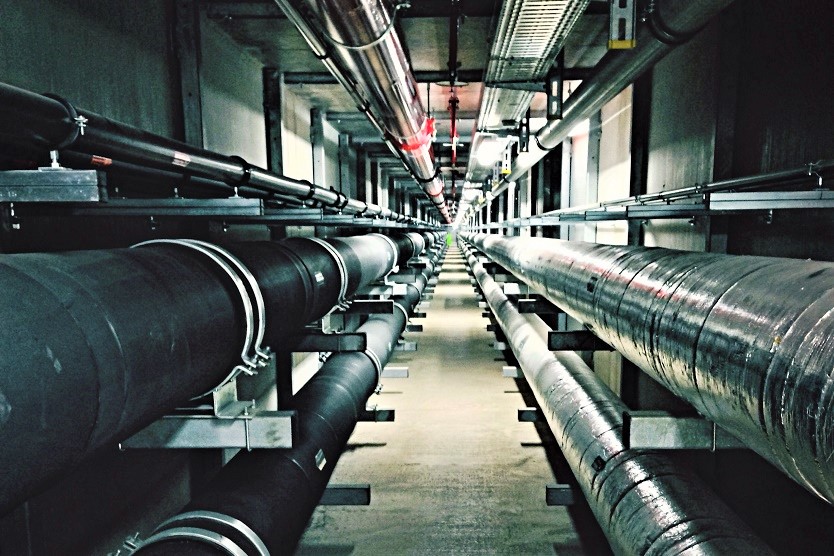
The ISE team tested several brine-based heat pump prototypes and achieved a record with the new circuit: just 124 grams of propane achieved a heating capacity of 12.8 KW.
© gettyimages.de/Ralf Müller/EyeEm
Heat pumps are one of the key technologies in Germany’s efforts to decarbonise its building stock – the Federal Ministry for Economic Affairs and Climate Action (BMWK) has pledged to install 500,000 new units annually from 2024 onwards. Manufacturers of heat pump systems are now focusing on finding more environmentally-friendly refrigerants that will lower the cost of installing and using the systems.
A refrigerant is a gaseous heat transfer medium that transports environmental heat collected from the ground, or outside, to the heating system. In the project LC150 (Low Charge 150 g), the Fraunhofer Institute for Solar Energy Systems (ISE) and a consortium of manufacturers are developing a novel refrigeration circuit that uses far less of the heat-transfer gas propane. LC150 was runner-up in the BMWK’s “German Raw Materials Efficiency Prize 2022” (Research Institution category) recently.
Commenting on the achievement in a press release, project manager Clemens Dankwerth says: “Heat pumps are no longer a marginal phenomenon. With our further development, heat pumps can be used where gas and oil boilers were the norm before. This way, Fraunhofer ISE can contribute to the heat transition and help to burn fewer fossil fuels."
One of the project’s key achievements was reducing the filling quantity of propane by about six times compared to commercially available pumps. Unlike CO2, propane is not a damaging greenhouse gas, but it is flammable and therefore must be kept in a semi-hermetic system and ideally reduced to a minimum.
The ISE team tested several brine-based heat pump prototypes and achieved a record with the new circuit: just 124 grams of propane (R290) – equivalent to the amount in five cigarette lighters – achieved a heating capacity of 12.8 KW (c. 10g per KW of heating capacity). The system is not yet ready for market, however. The manufacturer is working on fully hermetic compressors with a longer service life.


